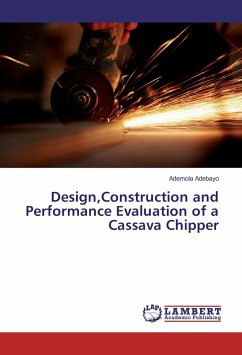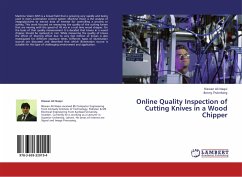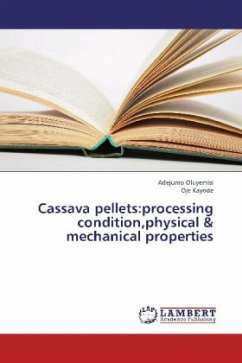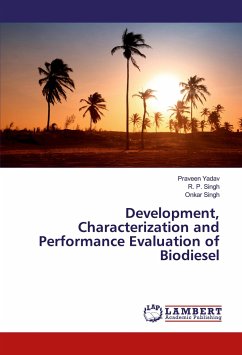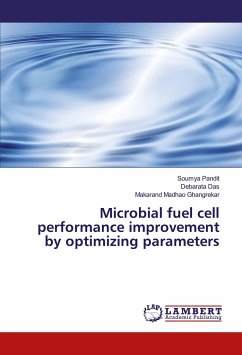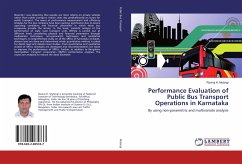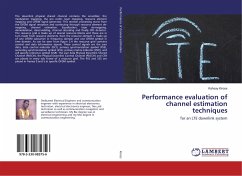Exportation of cassava can easily be achieved by changing the roots into chips. Cassava chips with its low moisture content will store for a long time than roots. Also, the reduction of volume-to-weight of chips makes exportation relatively cheaper. As a result, a cassava chipping machine was designed and fabricated. This was to reduce the drudgery involved in cassava chipping practices. The machine consists of a 4.476kW, 1440rpm electric motor with chipping blades arranged on the driven shaft to produce cassava chips. Six different speeds of rotation were used in order to determine the optimum speed for the design. A speed of 262rpm was recommended as the optimum speed with chipping efficiency and machine capacity of 60.1% and 363.84kg/h respectively. The machine produces about 220kg of good chips per hour.
Bitte wählen Sie Ihr Anliegen aus.
Rechnungen
Retourenschein anfordern
Bestellstatus
Storno

